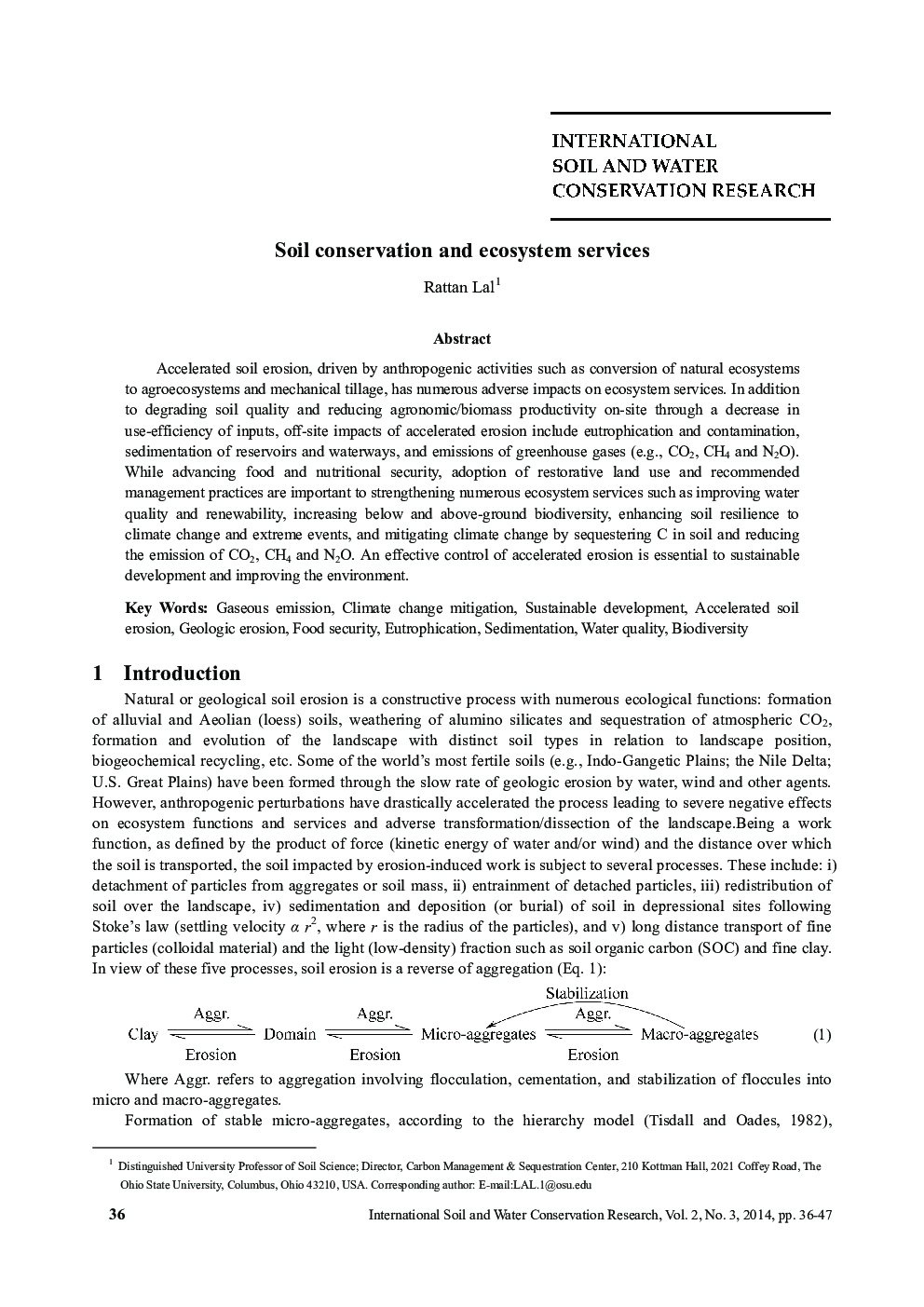| Article ID | Journal | Published Year | Pages | File Type |
|---|---|---|---|---|
| 4452120 | International Soil and Water Conservation Research | 2014 | 12 Pages |
Accelerated soil erosion, driven by anthropogenic activities such as conversion of natural ecosystems to agroecosystems and mechanical tillage, has numerous adverse impacts on ecosystem services. In addition to degrading soil quality and reducing agronomic/biomass productivity on-site through a decrease in use-efficiency of inputs, off-site impacts of accelerated erosion include eutrophication and contamination, sedimentation of reservoirs and waterways, and emissions of greenhouse gases (e.g., CO2, CH4 and N2O). While advancing food and nutritional security, adoption of restorative land use and recommended management practices are important to strengthening numerous ecosystem services such as improving water quality and renewability, increasing below and above-ground biodiversity, enhancing soil resilience to climate change and extreme events, and mitigating climate change by sequestering C in soil and reducing the emission of CO2, CH4 and N2O. An effective control of accelerated erosion is essential to sustainable development and improving the environment.
